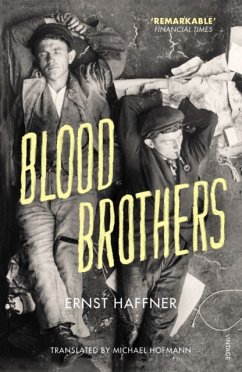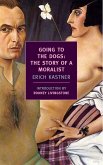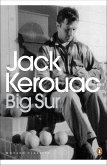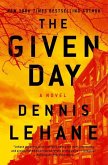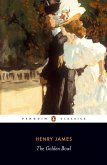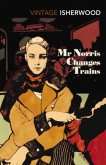Haffner s project is journalistic, to portray destitution and criminality without the false sparkle of glamour though Berlin is not half as boring as he (coyly) claims. The author was a social worker and a journalist, and his skill in portraiture and the depiction of a social milieu is evident The characters are engaging, and multidimensional. You care what happens to them. The Wall Street Journal
[Haffner] has the eye of a documentarian and a keen interest in particulars The New York Times
"Blood Brothers is a remarkable portrait, a lively, heartbreaking close-up, of the scrappy desperate lives of Berlin s homeless teenage boys in 1932. It deserves to sit on the shelf next to Christopher Isherwood s classic I Am A Camera which inspired the stage and film musical Cabaret...When you finish, you ll be haunted." The Boston Herald Hollywood & Mine Blog
"[W]hat an accomplished book...Haffner s novel would be compelling enough for the fact that it presentsreaders with unique insights into daily life during the final days of the Weimar Republic, but it s his bold insistence on presenting his subject s lives in such a matter-of-fact way that makes Blood Brothers truly standout as an interesting, valuable piece of unforgettable literature." Typographical Era
"[B]rilliantly translated into English by Michael Hofmann...Blood Brothers shocks because of its relevance to too much of the world we observe around us today." CounterPunch.org
"Blood Brothers remains relevant to us today. [Haffner's] novel remains, salvaged from the wreckage of history, insistent in its message that all our endless, merciless cities and towns and suburbs and wherever else our desperate lives play out are too much for anyone on their own." Words Without Borders
"[R]emarkable...Blood Brothers is an enthralling and significant novel, authentic in its gritty documentary detail, dispassionate yet empathic in its characterisation and starkly objective in its portrayal of Berlin s pre-Nazi social underbelly." Financial Times
To the small library of classic novels about Berlin before Hitler by the likes of Erich Kästner, Alfred Döblin and Christopher Isherwood we now belatedly welcome Haffner's. Blood Brothers delivers an unflinching yet deeply affecting portrait of life on Berlin's darkest and most desperate streets. Hofmann's translation beautifully captures Haffner's muscular, hardboiled prose. Lawrence Douglas, Amherst College, author of The Memory of Judgment and The Vices
"The story reveals the illicit, dark and disturbing underworld of Berlin on the eve of Hitler s rise to power...This is an important and unflinching classic in the making." Susan Jaffe, Creative Director, Thurber House
Theodor W. Adorno wrote what is perhaps the most powerful essay demystifying the legend of the "Golden Twenties." Ernst Haffner has written the novel. Beautifully. Dr. Eric Jarosinski, founding editor, NeinQuarterly
Haffner s book stands out for its documentary detail. It opens with a description of the hours-long queues at the labor exchange, and paints a vivid picture of the gang s initiation ceremonies, drinking rituals, and the glorious satisfaction of hot pea soup on an empty stomach. At the same time, Blood Brothers is plot-driven and told in a simple, straightforward, style. The Guardian
"Like a karate chop: hard and direct, but true." Der Spiegel
"A real discovery." Literarische Welt
[Haffner] has the eye of a documentarian and a keen interest in particulars The New York Times
"Blood Brothers is a remarkable portrait, a lively, heartbreaking close-up, of the scrappy desperate lives of Berlin s homeless teenage boys in 1932. It deserves to sit on the shelf next to Christopher Isherwood s classic I Am A Camera which inspired the stage and film musical Cabaret...When you finish, you ll be haunted." The Boston Herald Hollywood & Mine Blog
"[W]hat an accomplished book...Haffner s novel would be compelling enough for the fact that it presentsreaders with unique insights into daily life during the final days of the Weimar Republic, but it s his bold insistence on presenting his subject s lives in such a matter-of-fact way that makes Blood Brothers truly standout as an interesting, valuable piece of unforgettable literature." Typographical Era
"[B]rilliantly translated into English by Michael Hofmann...Blood Brothers shocks because of its relevance to too much of the world we observe around us today." CounterPunch.org
"Blood Brothers remains relevant to us today. [Haffner's] novel remains, salvaged from the wreckage of history, insistent in its message that all our endless, merciless cities and towns and suburbs and wherever else our desperate lives play out are too much for anyone on their own." Words Without Borders
"[R]emarkable...Blood Brothers is an enthralling and significant novel, authentic in its gritty documentary detail, dispassionate yet empathic in its characterisation and starkly objective in its portrayal of Berlin s pre-Nazi social underbelly." Financial Times
To the small library of classic novels about Berlin before Hitler by the likes of Erich Kästner, Alfred Döblin and Christopher Isherwood we now belatedly welcome Haffner's. Blood Brothers delivers an unflinching yet deeply affecting portrait of life on Berlin's darkest and most desperate streets. Hofmann's translation beautifully captures Haffner's muscular, hardboiled prose. Lawrence Douglas, Amherst College, author of The Memory of Judgment and The Vices
"The story reveals the illicit, dark and disturbing underworld of Berlin on the eve of Hitler s rise to power...This is an important and unflinching classic in the making." Susan Jaffe, Creative Director, Thurber House
Theodor W. Adorno wrote what is perhaps the most powerful essay demystifying the legend of the "Golden Twenties." Ernst Haffner has written the novel. Beautifully. Dr. Eric Jarosinski, founding editor, NeinQuarterly
Haffner s book stands out for its documentary detail. It opens with a description of the hours-long queues at the labor exchange, and paints a vivid picture of the gang s initiation ceremonies, drinking rituals, and the glorious satisfaction of hot pea soup on an empty stomach. At the same time, Blood Brothers is plot-driven and told in a simple, straightforward, style. The Guardian
"Like a karate chop: hard and direct, but true." Der Spiegel
"A real discovery." Literarische Welt

